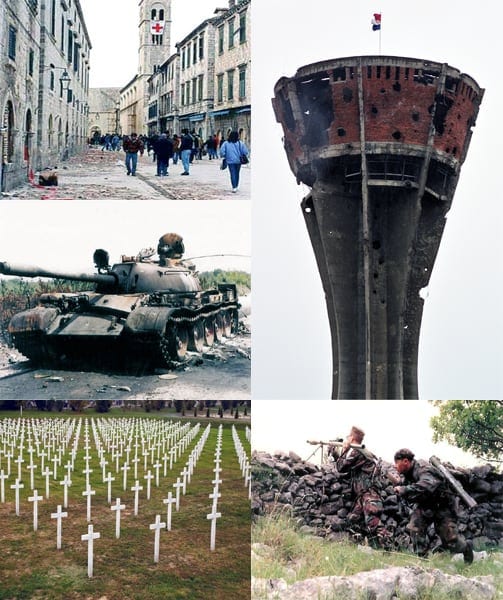Understanding the Croatian War of Independence
Key Takeaways
- Duration: 1991-1995
- Location: Croatia, with spillover into Bosnia and Herzegovina
- Outcome: Croatian victory, resulting in independence and territorial integrity.
The War’s Roots
The Croatian War of Independence stemmed from the disintegration of Yugoslavia, fueled by nationalistic tensions. As Croatia moved towards independence, Serbs within Croatia, supported by Serbia, opposed this, leading to conflict. Key figures included Croatian President Franjo Tuđman and Serbian President Slobodan Milošević.
Key Events and Military Dynamics
- Initial Stages: Croatian declaration of independence led to conflict with Serb-controlled Yugoslav People’s Army (JNA) and local Serb forces.
- Major Battles: Included the Siege of Dubrovnik, Battle of Vukovar, and Operation Storm.
- Territorial Gains: Croatian forces regained control over most territories, concluding with the reintegration of Eastern Slavonia.
Humanitarian Impact
- Casualties and Refugees: Approximately 20,000 people killed, with over 500,000 refugees and displaced persons.
- War Crimes: Atrocities occurred on both sides, including the Vukovar and Ovčara massacres. The International Criminal Tribunal for the former Yugoslavia (ICTY) indicted leaders and military personnel from both sides.
International Involvement
- UN: Deployed the United Nations Protection Force (UNPROFOR) to maintain ceasefires.
- International Recognition: Croatia’s independence was recognized by the European Community and other nations in 1992.
- Peace Agreements: The Erdut Agreement facilitated a peaceful reintegration of Eastern Slavonia.
Post-War Developments
- ICTY Trials: Key figures were tried for war crimes, including Ante Gotovina and Slobodan Milošević.
- Croatia-Serbia Relations: Relations improved post-war, with mutual visits by leaders and diplomatic efforts to address the legacy of the conflict.
Analysis
The Croatian War of Independence was a crucial conflict in the disintegration of Yugoslavia. It highlighted the complexities of ethnic tensions in the Balkans and the challenges of transitioning from a federal state to independent nations. The war’s legacy is marked by its humanitarian impact, war crimes, and the enduring need for reconciliation and justice in the region.
